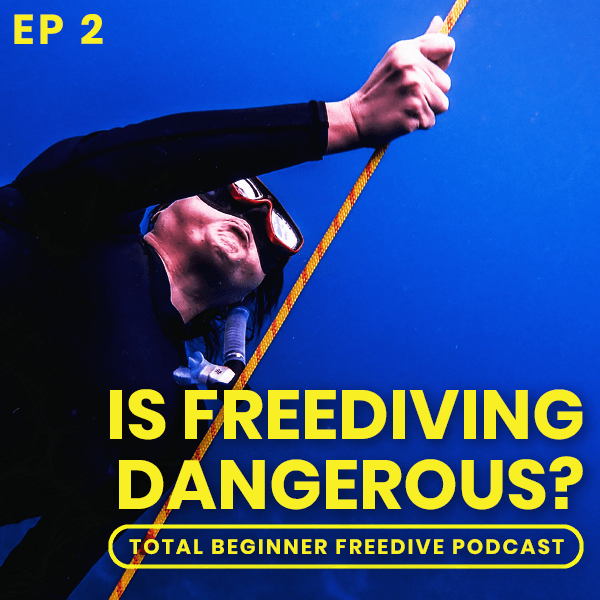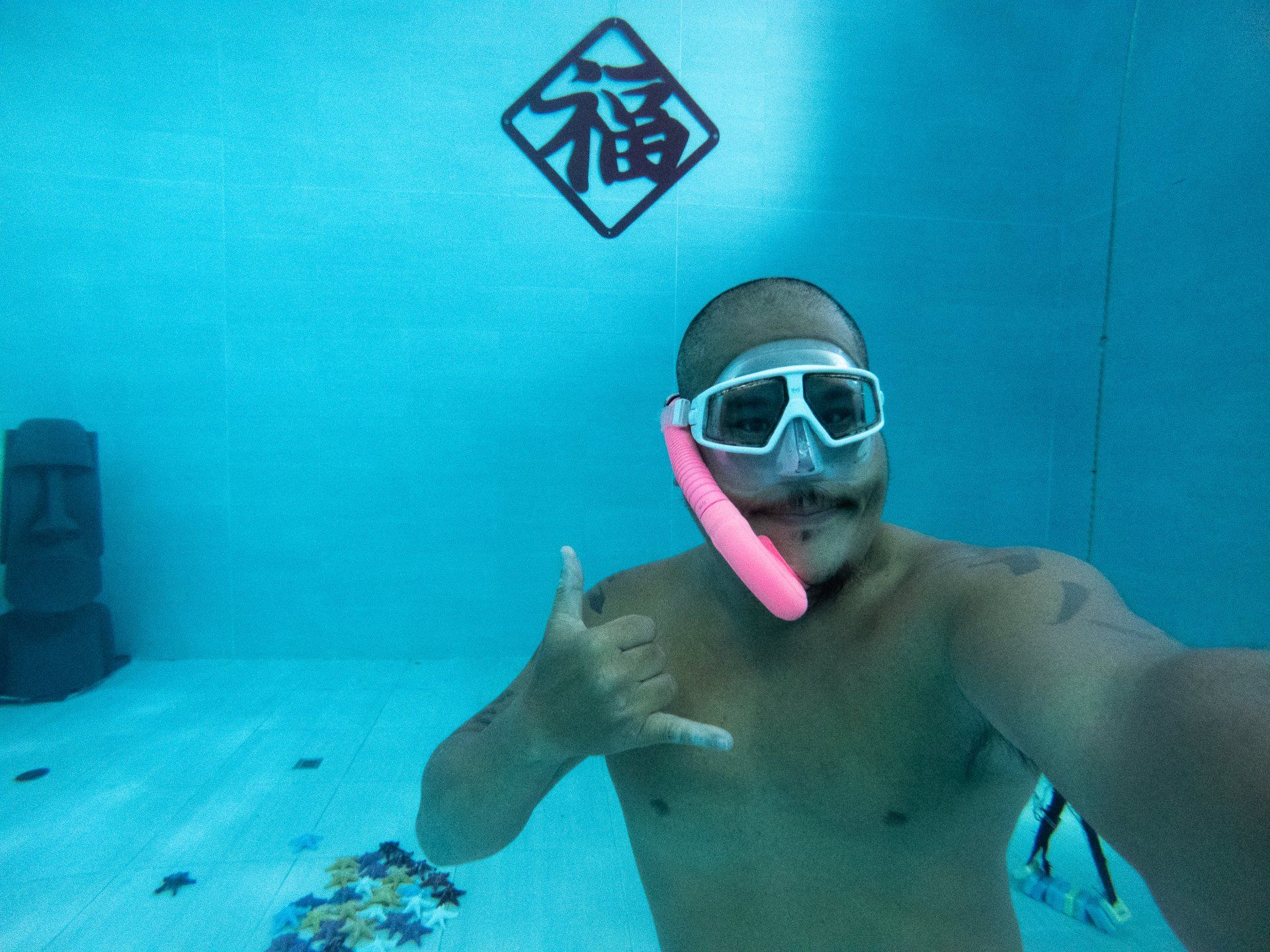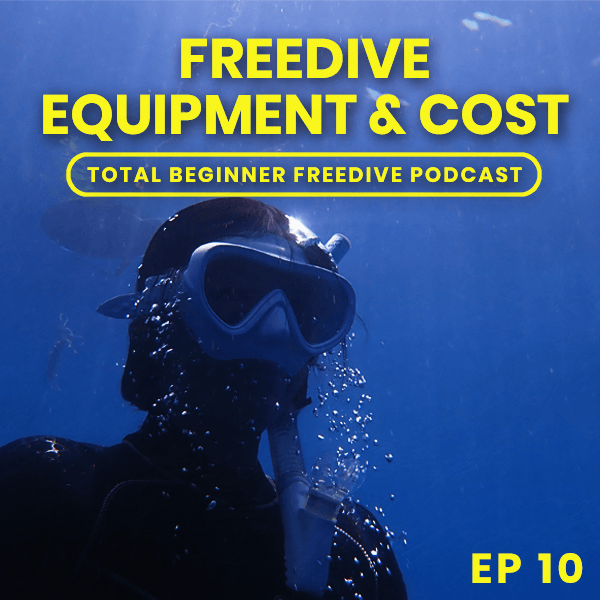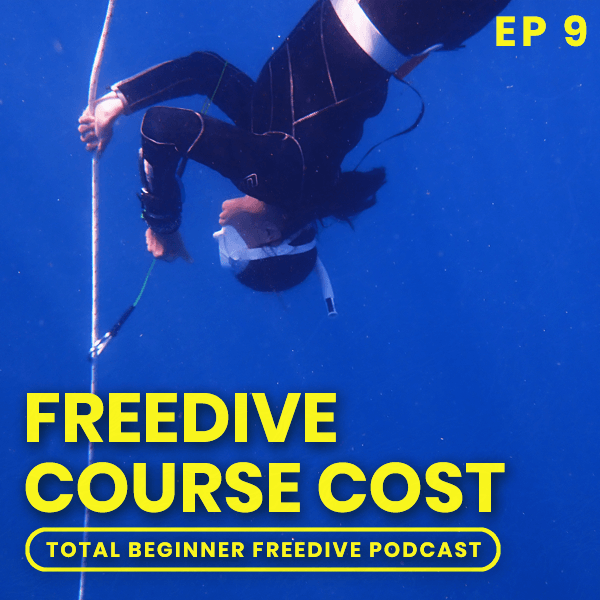Raymond Ko • June 30, 2021
Is Freediving Dangerous?

Show Notes
This podcast is brought to you by Octopus Freediving
Is freediving dangerous? There's not a straightforward answer to that question.
The biggest risk in freediving is blacking out and learning how to avoid a black out and being prepared if it does happen is essential foundation of making freediving safe.
Resources
Facebook Group
Free E-book Sign Up
Free Online Freedive Safety Course
You can support this show by buying from our affiliates partners:
Waihana Wetsuits - the coolest looking wetsuits using eco-friendly neoprene. Use the coupon code 0OG0UZZBLP for 15% off
Blue Cannatine - the BEST nootropic to get my brain to function optimally after diving. 10% discount with that link.
Synctuition - my favorite meditation app and I've tried A LOT
Transcipts
Hello future freedivers and thank you for downloading this episode of the Total Beginner Freedive Podcast brought to you by our partners at Octopus Freediving which make super duper high quality freediving accessories
Welcome to episode #2 where we address the elephant in the room and answer the question that’s asked most often.
Is freediving dangerous?
But before we answer that, if you haven't done so already download your free FAQ e-book at freedivepodcast.com/ebook or follow the link in the show notes.
Hello again, I’m Ray, the Freedive Nomad and the host of this show.
So the quick answer to that question is freediving dangerous is
Freediving is very dangerous when you don’t know what you are doing and relatively safe when you do.
Recently, Alex Pullin, a snowboarder who represented Australia in the Olympics twice, died in July 2020 in the ocean while spearfishing. He was described as a seasoned “freediver” and “spear fisherman” and it was written in the media as a “freediver drowned”
He may have been well experienced in the water, but experience with no education can be dangerous.
Let me give you an example, I was taught how to ride a motorcycle from a friend, but it was not until I was required to take a safety course to get my motorcycle license in the US that I was aware of all the risks and dangers of riding a motorcycle and how to mitigate risks.
My friend’s only interest was to teach me HOW to ride a motorcycle, but he was not trained to teach me to reduce risks, like I learned in the class I took.
If you want to get into freediving, TAKE A FREEDIVING COURSE.
Most of the accidents or deaths during freediving have happened to those who were not formally trained and did not take any precautions to mitigate risks.
NEVER DIVE ALONE should be every freediver’s mantra yet a large large large majority of the deaths in freediving whether you are experienced or a total beginner happens when you dive alone, as in Alex Pullin’s case and in the case of a few professional freedive competitors.
And yes, there have been a few deaths in competition or in pursuit of breaking world records, but please don’t make judgement of risks based on the extreme side of the sport, it’s like, equating the risks of recreational skydiving to wing suit flyers or base jumpers.
Now, the greatest risk in freediving is blacking out. There are a few more risks which go beyond the scope of this podcast, but blacking out and dying is what you hear about most in the news.
Blacking out is the body’s response to dangerously low oxygen. If you dive and black out with a trained buddy, he will bring you to the surface and revive you as they will have been trained to do in a freedive course.
And did you know most blackouts, over 90%, happen between 10 meters or 33 feet deep and the surface?
This is because of the concept of partial pressure. You don’t necessarily blackout due to low percentage of oxygen saturation in your blood, it is because of the partial pressure of oxygen. The EASIEST way to think of this is the deeper you go, the increasing pressure causes a higher concentration of oxygen in your blood and thus easier access to oxygen by your body.
Between 10 meters to the surface your body experiences the greatest drop in partial pressure of oxygen, it HALVES, and that is because of the physics concept Boyle’s law which you will learn in a course which I won’t get into.
Thus it is this sharp drop in partial pressure of oxygen between 10 meters and the surface that causes the blackout.
And the scariest part is, everyone who blacks out, doesn't even know it’s coming, even very experienced freedivers. You actually feel euphoric before you black out.
That’s why taking a freedive course is vital where you’ll learn efficient technique and breathing to avoid blackout, recognize signs of a diver is about to black out and rescue.
Taking a freedive course is the safest and most enjoyable way to start your freediving journey.
So in closing, yes it is dangerous, but a lot of the risks can be mitigated with practice and education and dangers are mostly exaggerated.
I know everyone doesn’t have access to a freedive instructor whether it be geography or costs. If this is the case there is a free freediving safety course which I highly recommend, the link is in my show notes.
That’s it for today’s episode
If you haven’t done so already - join this podcast Facebook group which is a safe space to ask all your questions about freediving. You know how the internet can get these days. You can find it at freedivepodcast.com/fb or in the show notes.
And I can’t forget about our friends at Waihana which make the coolest eco-friendly wetsuits out there. Follow the link in the show notes where you can also get a 10% coupon code.
Finally, please rate this show on your favorite podcast network and share with your friends. All of them. Every single one. Por favor. Oneigaishimasu.
Dive safe and never dive alone





